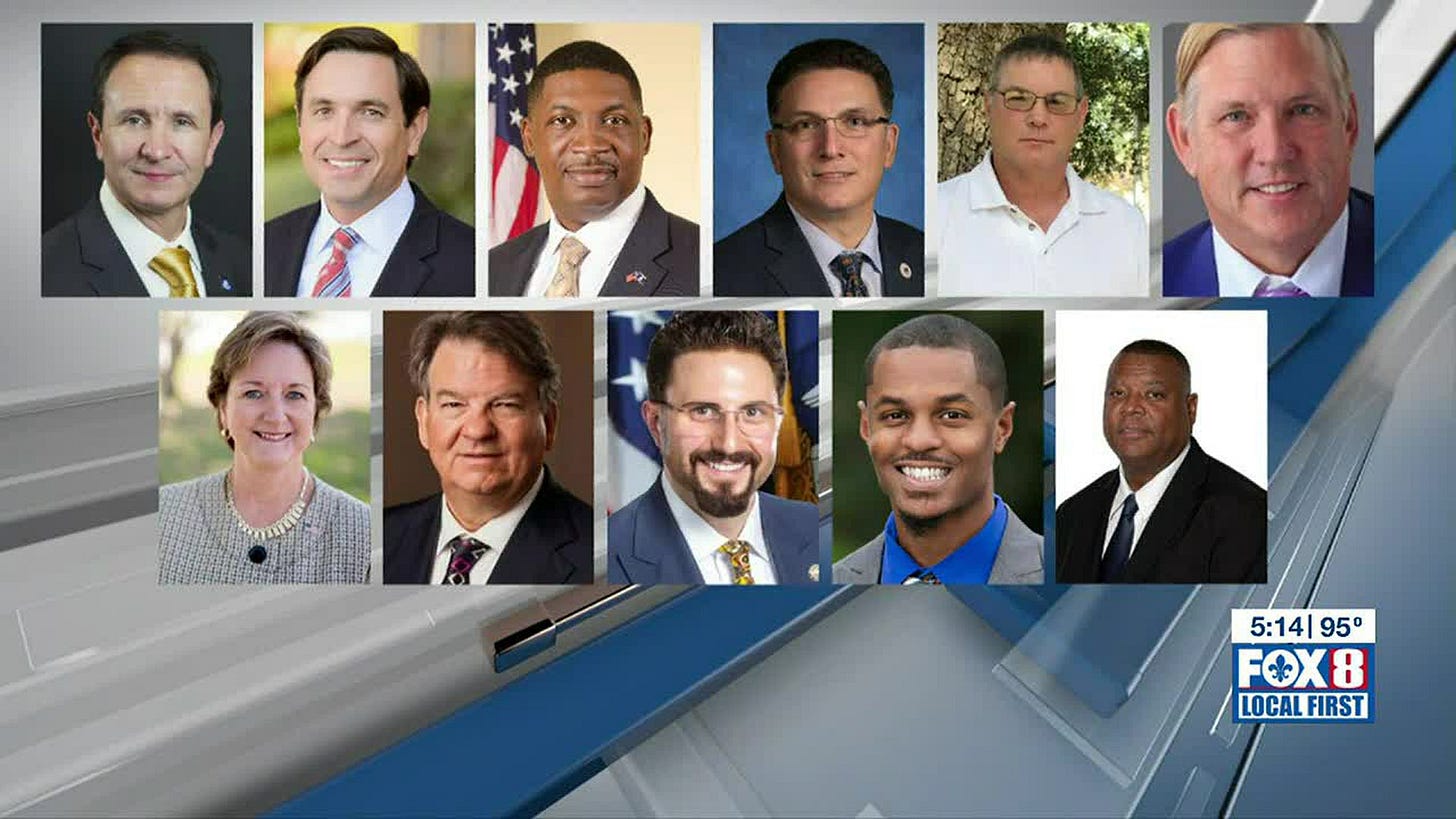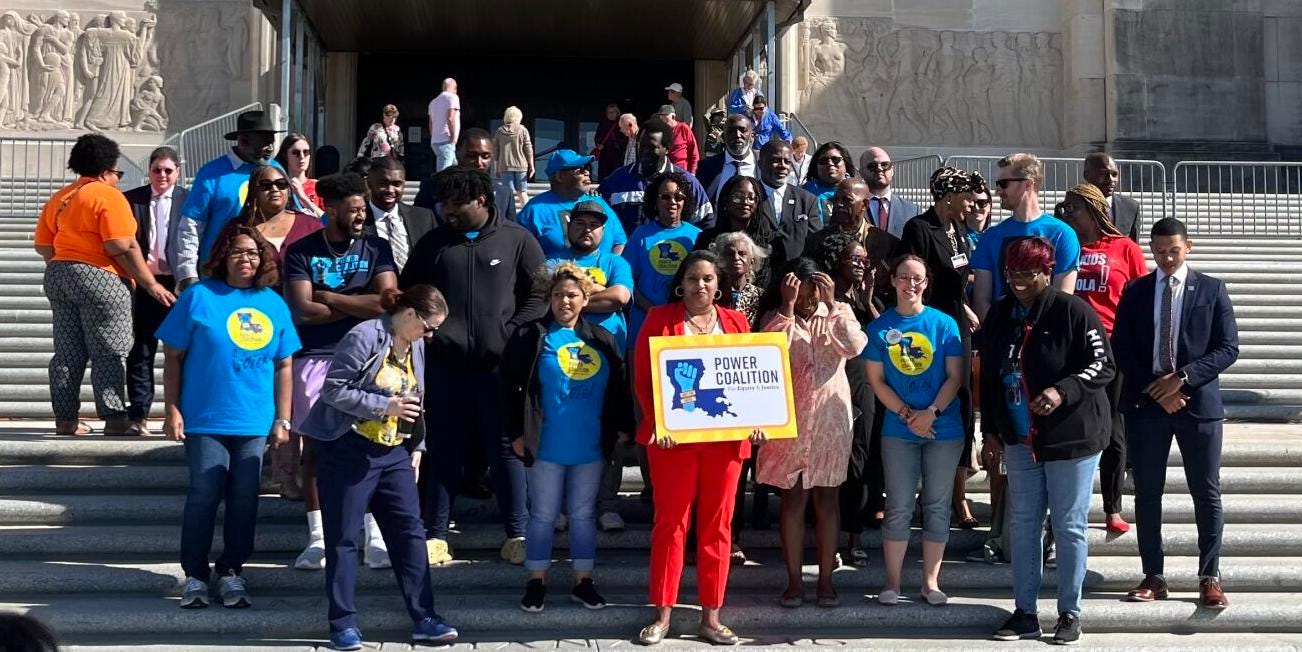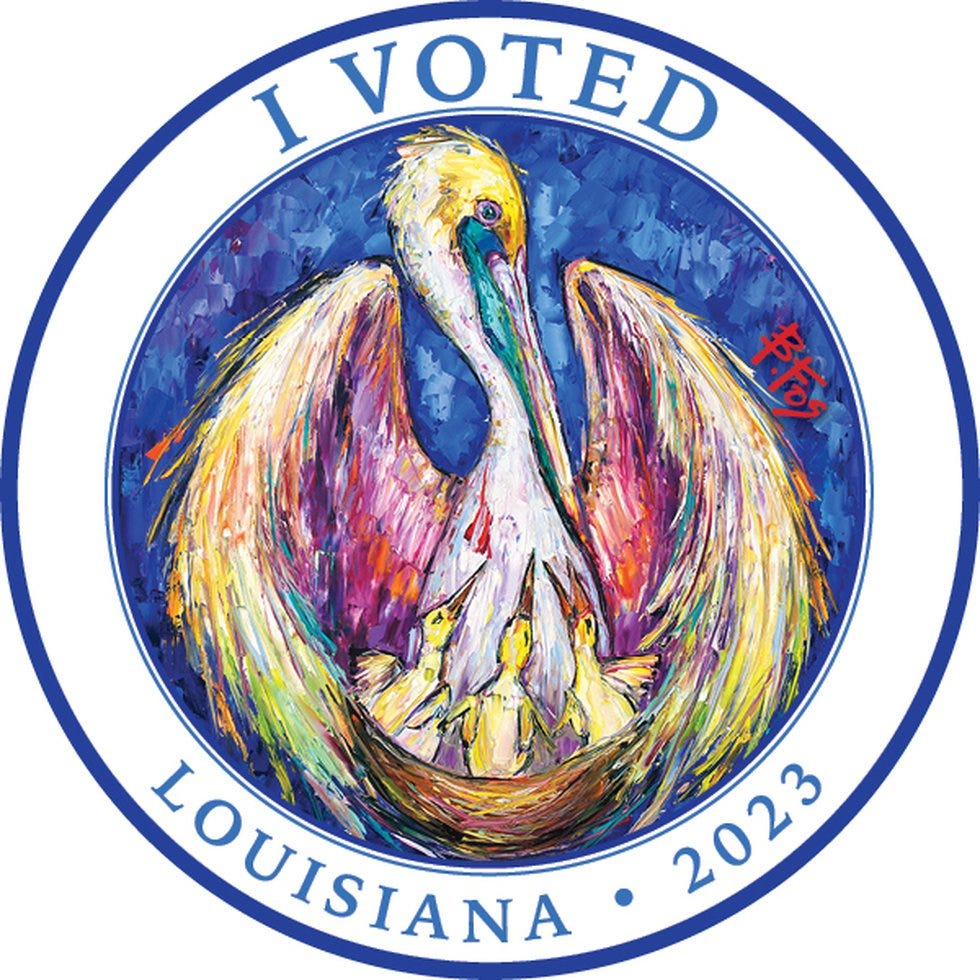Early voting for this election begins on September 30 and ends on October 7, (excluding Sunday, October 1) from 8:30 a.m. to 6 p.m.
Election Day is October 14. Saturday election voting hours are 7 a.m. to 8 p.m.
If you find that you cannot in good conscience cast a vote for any of the candidates for a particular race or a specific ballot measure, you are allowed to skip that ballot item. According to the Secretary of State’s office, “A voter cannot cast a blank ballot; otherwise, they are free to vote for as many or as few races/questions as are on their ballot—from all of them to just one of them.”
There’s been a huge uptick in election coverage on the news and social media in the past couple of weeks because of the upcoming election on October 14, where nearly 3 million registered Louisiana voters will determine the next state governor, among many, many, many other important and possibly more critical races happening down-ballot. To name a few: lieutenant governor, secretary of state, attorney general, treasurer, some constitutional amendments, some state representatives, some state senators, and other races more localized to where each citizen lives.
The text above the divider line is taken from the freshly released ANTIGRAVITY Voter Education Guide, a free online resource that condenses the election ballot into a succinct, one-stop guide for every race, candidate, measure, amendment, etc. for Election Day (this one is for October 14). Guides like this offer people the ability to catch up on years of political background and development with the ultimate aim of informing voters so that they can make their own decisions. Albeit, ANTIGRAVITY’s guide is more pointed to its readers and, therefore, offers suggestions based on the values that the magazine stands for: progressivism, anti-police, anti-racism, harm reduction, etc. Other guides, like Louisianabrah’s, can stem from an individual’s personal takeaways from their research, which is really effective in connecting with people they know and giving friends, family, or even fans, a source of trust.

People are voter “guides”
I find this approach essential to getting others to vote really effective. Inundating busy people with endless resources, articles, and, to be honest, voter guides can be extremely overwhelming. After the last election, I’ve started making it more publicly known that I can provide people with advice or guidance. I used to think that would sway someone’s vote, until one day a friend called me and said, “Van, I seriously don’t know what has been going on so please tell me what to vote for so I don’t fuck up.”
I could spend all election season posting webinars, guides, and analyses, but who really has the time to read all of that? I barely do, but I’m also a big voting nerd so I’m already plugged into a steady stream of news and developments. It is much more significant to the voter to have an open dialogue with a human. Having a friend to talk with to parse through the facts and the rhetoric is impactful not just for getting the vote out, but for fostering more regular conversations about voting. Studies have shown an increase in voter turnout when people engage peers in conversations to vote. We should normalize talking politics and voting, because it impacts all of us, some more inequitably than others. That makes having conversations all the more critical.
Beyond the ballot
There’s a legitimate concern with casting the “wrong” ballot. When you’re at the polling location, they give you nothing to prepare you. You’re thrust into a curtained box with a large screen facing you and the only information you have to work off of is the candidate and their political party. And it’s becoming more common that folks are voting on party lines (though it’s not exactly a sin to do it).
Even if a candidate or measure looks good on paper, there’s more historical and political context to be known for a truly informed decision. Particularly so for races where ALL of the candidates are the same party. The best of the best voter guides provide this context and it’s critical to understanding something like who authored a ballot measure or how a candidate has treated the community in the past.
But you should know that you don’t have to vote on everything. “Undervoting” is intentionally not voting for something or someone when no good options present themselves. It’s likely to happen this election, where several candidate races are all filled with problematic Republicans.

But that’s not to say that the entire ballot is not worth your time - it absolutely is. Things like constitutional amendments are essential to vote on. Because Louisiana’s constitution can only be amended by voter consensus, legislators often pass the amendments to voters when they want to circumvent the lengthy process of passing it through to the governor. Without the governor’s input to sign or veto the bill, we only have ourselves to rely on.
Votes do not come free
Our vote always matters. My friend’s call was refreshing because it reminded me how valuable a vote can be, to the point where people may be too afraid to even vote at all if not given some help. What I hope to remind people about is that voting is also a privilege. Not all people are afforded the access to vote. COVID-19 really exacerbated voting disparities, but in general, it’s much more difficult for distant rural residents, people who are unhoused, and people who can’t take off work. Yet, it’s only the small percent of voters that turnout that decide the course for the whole state. To put that in context, 1.3 million Louisianians who were registered to vote actually voted in the November 2022 election, compared to a state population of 4.6 million.
Not to mention the historic efforts to expand voter accessibility to women, Black people, and formerly incarcerated people. Incarcerated individuals lose their right to vote and in some states are not automatically given it back. Louisiana restores “rights” to formerly incarcerated folks after a parole/probation period, but access is still restrictive where documentation to prove is required from felons to have their voting rights restored. An ongoing suit against the secretary of state hopes to resolve this suppressive measure.

This demonstrates that our vote matters much more than we think. Not to say we’re voting on behalf of anyone else, but the election results have implications for the entire state. It’s important to remember that voting is the public’s best method to subvert systemic issues and powerful politicians. Where social justice advocates are on the frontlines, voters are downstream in the process of change to put people we trust in positions of power.

As we head into this election cycle, do not lose hope. This election is not the end all be all. Even if the results aren’t what we like, we’ve fared through more widespread political circumstances (read Donald Trump), but not without a few cuts and scratches that trickle down to our local politics. Several gubernatorial candidates are subscribed to the false “stolen election” narrative. Even one of the constitutional amendments stems from this far-right notion and appears in good faith on paper. As the national political landscape shifts, the impacts are felt closer to home. The smaller, down-ballot races hold more weight than we give them credit for.
I urge you to make a plan for October 14 and again for November 18. Visit the sos.gov voter portal or download the GeauxVote app and come prepared with your sample ballot before arriving at the polls. Block off your calendar, turn it into an occasion, and carpool with friends. I might consider doing that now that I think of it. However you wish to do it, I hope that this helps instill something within you to be that guide for your relationships.
Please comment and let me know if you share any of these thoughts or want to discuss these topics more.
This week’s jams (paid subscribers only)
This week, I’ve put together a playlist to motivate you to get to the polls.
Unfortunately, I have leaned into heavier music (I promise I’ll expand my music selections) that all have sociopolitical messaging, some more subtle than others. Some bands to highlight:
Body Count is Ice T’s hardcore band, with hard-hitting, real-life lyrics that decry police violence and murder of Black bodies and protests militarized police and complacency in the face of adversity.
Sunrot is a New Jersey-based doom metal band that packs a political punch, representing angry queer identity in a country that has also disparaged the LGBTQ+ community.
Silent Plant’s song Panopticon harps at our addiction to technology and inability to see the everyday struggles of the people in the neighborhoods and communities that surround us.




